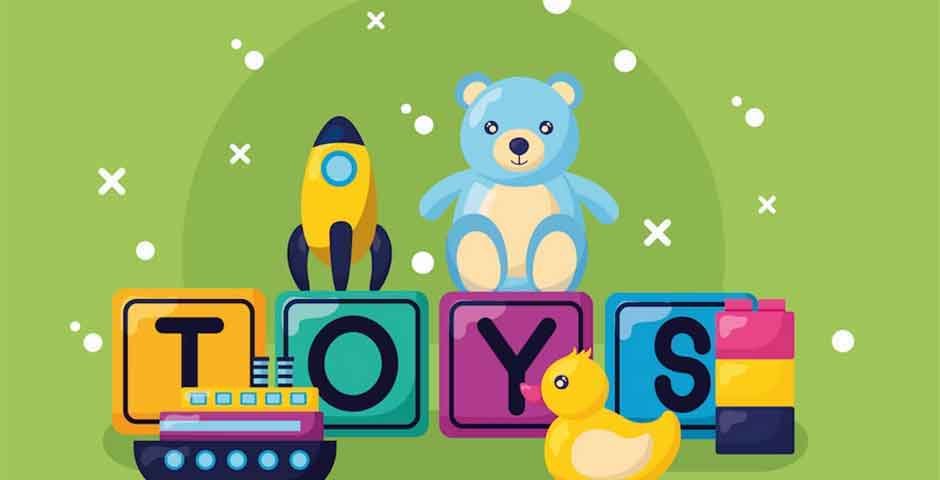It’s an age-old problem: Kids love toys, and parents often want to give in to their pleas. But if you’re like most concerned caregivers, you may be asking yourself the same question we do – what is the significance of toys? Is it merely just a way for our little ones to let off some steam, or is there something more meaningful behind these seemingly silly playthings?
As it turns out, the answer may surprise you and make those toy purchases feel even better. Whether it’s a bunny light for you or a jigsaw puzzle for grandma, toys give us the opportunity to take a break from reality and share some giggles together. Read on as we explore why they are so important.
Toys Promote Imagination And Creativity
Whether you’re a kid or an adult, toys can be a super fun way to step away from the grind of reality into another world where your only limit is your imagination. Kids can explore new ideas and inventions through play, from flying superheroes to fantastical rocket ships. Adults can get nostalgic by revisiting beloved childhood memories or enjoy bonding time with their own family.
Regardless of age, toys are essential in forming valuable life skills like collaboration and problem-solving. Consider this fact: who hasn’t experienced frustration when the jigsaw puzzle pieces don’t fit together? But nothing beats that feeling of satisfaction after the entire image comes together. In short, toys are more than just ‘stuff for kids’: they’re powerful tools for inspiring inventive minds. So let loose and enjoy the magic of Toyland – you’re never too old to dream.
Toys Aid In Cognitive And Motor Skill Development
Toys provide unparalleled intrinsic feedback loops that can be used to forge cognitive, as well as motor, skills. Studies have shown early cognition maturity to depend on the opportunity for exploration and discovery made available when a child has access to varied kinds of toys. Such explorations allow for basic concepts like problem-solving to develop the neural network pathways needed for later stages of learning.
Furthermore, the multiple levels of engagement that come from manipulating objects also allow for rudimentary motor skills formation, such as finger strength and coordination. Therefore, by providing a child with an array of appropriate toys, parents can help ensure that their child designs his or her own journey to becoming an informed and independent learner with strong physical abilities.
Toys Foster Socialization And Communication
Playing with toys can have a positive impact on social development. Through free play and role-play, children can act out real-life scenarios and learn the basics of conversation and social interaction. Toys that require cooperative play, such as Legos or puzzles, give children an opportunity to interact with each other in a collaborative way. With access to a variety of toys, children are able to develop a diverse range of interests which can help them to build strong relationships with peers they may not usually communicate with.
From dolls, cars, and train sets to action figures and stuffed animals, there is something for every child which helps them explore their individuality in an enjoyable way. As a result, toys are an integral part of growing up and help foster socialization and communication in the formative years of a child’s life.
Toys Teach Children About STEM
More and more parents are recognizing the importance of teaching children about STEM (Science, Technology, Engineering, and Mathematics) related topics at an early age. It can often be difficult to find age-appropriate ways to introduce these concepts, but thankfully there are toys on the market that allow parents to do just that. By providing stimulating toys such as those related to robotics, simple engineering kits, or tactile puzzles that challenge children to improve their problem-solving skills, kids can gain a head start in understanding how their world works from a scientific and mathematical perspective. As these toys become more available and continue to evolve with new technologies, the importance of placing an emphasis on STEM education for children continues to grow.
Toys matter because they are essential for both physical and mental development. Through the learning process that comes from play, toys can help cultivate a child’s appreciation of the world around them and their place in it. Perhaps most importantly, playing is often linked to happiness; consequently, toys are paramount for keeping children entertained and engaged with life. In this way, kids learn to appreciate nature through educational playtime experiences just as much as they do from books and classroom discussions. By investing in high-quality toys that offer hours of entertainment, parents can help create happier and more grounded kids who really know how to have a good time and get the most out of their childhoods.






